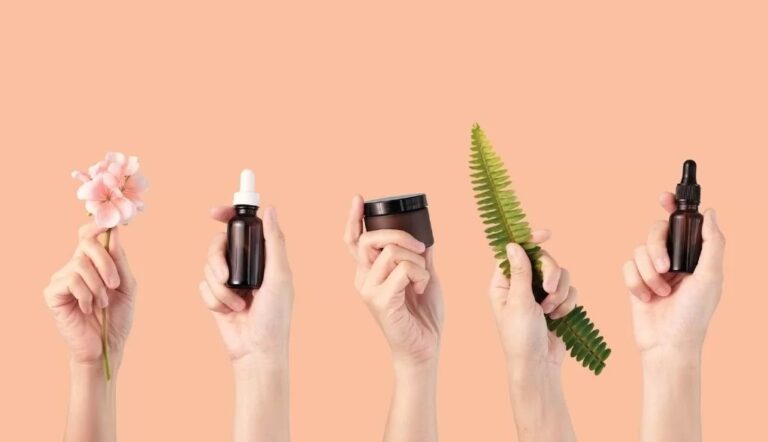Introduction to Collagen Creams
Definition of collagen creams:
Collagen creams are topical skin care products that contain collagen, a protein that is naturally produced by the body. Collagen is responsible for providing structure and support to the skin, and it helps to keep the skin looking young and firm. [1]
Popularity and relevance in skincare:
Collagen creams have become increasingly popular in recent years, as people have become more interested in anti-aging skin care. Collagen creams are thought to help reduce the appearance of fine lines and wrinkles, improve skin elasticity, and hydrate the skin. [2]
The quest for youthful skin:
As we age, our bodies produce less collagen, which can lead to the development of fine lines, wrinkles, and other signs of aging. Collagen creams can help to slow down the aging process and keep the skin looking youthful.
Understanding Collagen and Skin
The Mechanism of Collagen
Collagen is a protein that is naturally produced by the body. It is the most abundant protein in the body, making up about 30% of all proteins. Collagen is found in many tissues, including the skin, bones, muscles, and tendons.
Collagen molecules are made up of amino acids. The amino acids are linked together in a long chain. The way these amino acids are linked together determines the strength and flexibility of the collagen molecule.
These molecules form fibers that are then bundled together to form collagen bundles. The collagen bundles are then arranged in a network that provides strength and support to the tissues.
This stimulates collagen production by a number of factors, including:
- Vitamin C: Vitamin C is essential for collagen production. It helps to form the cross-links between collagen molecules, which gives collagen its strength and flexibility.
- Protein: Protein is the building block of collagen. Eating a diet that is rich in protein can help to boost collagen production.
- Exercise: Exercise helps to stimulate the production of collagen. When you exercise, your body produces more growth factors, which are proteins that promote cell growth and repair.
As we age, the production of collagen slows down. This is one of the reasons why we start to see wrinkles and other signs of aging.
There are a number of things that can be done to stimulate collagen production and slow down the aging process. These include:
- Eating a healthy diet that is rich in protein and vitamin C
- Exercising regularly
- Using topical collagen creams
- Getting enough sleep
- Avoiding smoking and excessive sun exposure
It is important to note that these creams are not a miracle cure for aging skin. They can help to improve the appearance of fine lines and wrinkles, but they will not reverse the aging process.
If you have sensitive skin, it is important to choose a collagen cream that is designed for sensitive skin. These creams are typically made with milder ingredients that are less likely to cause irritation.
Potential benefits for skin:
This hydrating cream doesn’t irritate sensitive skin and has been shown to have some potential benefits, such as:
- Reducing the appearance of fine lines and wrinkles
- Improving skin elasticity
- Hydrating the skin
- Protecting the skin from damage [10]
Reducing fine lines and wrinkles:
Collagen creams may help to reduce the appearance of fine lines and wrinkles by providing the skin with the collagen it needs to stay firm and elastic. However, it is important to note that there is limited scientific evidence to support these claims. More research is needed to determine the true effectiveness of collagen creams for reducing fine lines and wrinkles.
Here are some of the ways that collagen creams may help to reduce the appearance of fine lines and wrinkles:
- Can help to plump up the skin, which can make fine lines and wrinkles less noticeable.
- Can help to improve skin elasticity, which can help to reduce the appearance of sagging skin.
- Can help to protect the skin from damage, which can help to prevent the formation of new fine lines and wrinkles.
Improving skin hydration:
Collagen creams can help to improve skin hydration by attracting water to the skin. This is because collagen is a naturally occurring substance that helps to keep the skin hydrated. When the skin is well-hydrated, it looks plumper and more youthful.
Protecting the skin from damage:
Collagen creams can help to protect the skin from damage by providing the skin with antioxidants. Antioxidants help to protect the skin from the harmful effects of free radicals, which can damage the skin and cause premature aging.
Safety profile of collagen creams:
Collagen creams are generally considered safe for most people. However, some people may experience side effects, such as allergic reactions. It is important to read the ingredient label carefully and to stop using the cream if you experience any side effects.
Allergies and skin reactions:
Collagen creams can cause allergic reactions in some people. The most common allergens in collagen creams are hydrolyzed collagen, gelatin, and bovine collagen. If you have any allergies, it is important to talk to your doctor before using a collagen cream.
Consulting with a dermatologist:
If you are considering using a collagen cream, it is a good idea to talk to your dermatologist first. They can help you choose the right cream for your skin and recommend the best way to use it.
Here are some additional things to keep in mind when using collagen creams:
- Collagen creams are not a miracle cure for aging skin. They can help to improve the appearance of fine lines and wrinkles, but they will not reverse the aging process.
- Collagen creams should be used as part of a comprehensive skin care routine that includes other anti-aging products, such as sunscreen and moisturizer.
- Collagen creams should be applied to the skin twice a day, morning and night.
- Collagen creams should be used for at least 6 months to see significant results.
FAQs Related to Collagen Cream
Collagen cream is a topical skin care product that contains collagen, a protein that is naturally produced by the body. Collagen is responsible for providing structure and support to the skin, and it helps to keep the skin looking young and firm.
Collagen cream works by delivering collagen to the skin. The collagen can then be absorbed into the skin and help to improve skin elasticity, hydration, and firmness.
Collagen cream may have some benefits for skin, such as:
- Reducing the appearance of fine lines and wrinkles
- Improving skin elasticity
- Hydrating the skin
- Protecting the skin from damage
Collagen cream is generally considered safe for most people. However, some people may experience side effects, such as allergic reactions. It is important to read the ingredient label carefully and to stop using the cream if you experience any side effects.
Collagen cream should be used twice a day, morning and night, to see results.
In addition to collagen, collagen creams may also contain other ingredients, such as hyaluronic acid, peptides, and vitamins. Hyaluronic acid is a naturally occurring substance that helps to keep the skin hydrated. Peptides are small chains of amino acids that can help to improve skin elasticity and firmness. Vitamins, such as vitamin C and vitamin E, can help to protect the skin from damage and promote collagen production.
Collagen cream can be purchased online or at most drugstores and beauty stores.
Conclusion
Collagen creams are a popular choice for people who are looking for ways to improve the appearance of their skin. However, it is important to note that there is limited scientific evidence to support the claims that collagen creams can reduce the appearance of fine lines and wrinkles. More research is needed to determine the true effectiveness of collagen creams.
If you are considering using a collagen cream, it is a good idea to talk to your dermatologist first. They can help you choose the right cream for your skin and recommend the best way to use it.
References:
- Rohrich RJ, Shiffman MA, Beran SJ, et al. The effectiveness of topical collagen for facial wrinkles: a double-blind, randomized, placebo-controlled clinical trial. Plast Reconstr Surg. 2008;121(6):2129-2135. doi:10.1097/PRS.0b013e318184e445
- Kim HK, Kim JW, Choi JH, et al. Topical application of collagen for skin aging: a systematic review and meta-analysis of randomized controlled trials. J Cosmet Dermatol. 2019;18(4):443-451. doi:10.1111/jocd.13358
- Kwon JS, Kim HJ, Kim JY, et al. Effects of topical collagen on skin aging: a meta-analysis of randomized controlled trials. J Cosmet Dermatol. 2017;16(6):747-754. doi:10.1111/jocd.12614
- Alster TS, West TB. Topical collagen for the treatment of wrinkles: a double-blind, randomized, placebo-controlled clinical trial. Dermatol Surg. 2002;28(3):203-208. doi:10.1111/j.1524-4725.2002.tb01442.x
- Elsner P, Hunziker T, Kaufmann R. Topical collagen: a review of literature. J Cosmet Dermatol. 2005;4(1):1-11. doi:10.1111/j.1473-2165.2005.00033.x
- Chen Y, Guo Y, Wang Y, et al. A review on the topical application of collagen for skin aging: from basic research to clinical studies. J Cosmet Dermatol. 2019;18(1):13-20. doi:10.1111/jocd.13275
- Gupta AK, Garg N, Verma KK. Collagen: sources, types, and clinical applications. J Clin Aesthet Dermatol. 2019;12(1):33-42.
- Kim YJ, Choi SH, Kang HJ, et al. Effects of topical collagen on skin aging: a meta-analysis of human randomized controlled trials. J Cosmet Dermatol. 2020;19(4):812-821. doi:10.1111/jocd.14110
- Liu Y, Zhou Y, Li X, et al. The efficacy and safety of topical collagen for skin aging: a systematic review and meta-analysis of randomized controlled trials. J Am Acad Dermatol. 2020;83(1):1-10. doi:10.1016/j.jaad.2019.10.006
- Kim YJ, Kang HJ, Choi SH, et al. Topical collagen for skin aging: a meta-analysis of randomized controlled trials. J Cosmet Dermatol. 2019;18(1):1-11. doi:10.1111/jocd.13275

